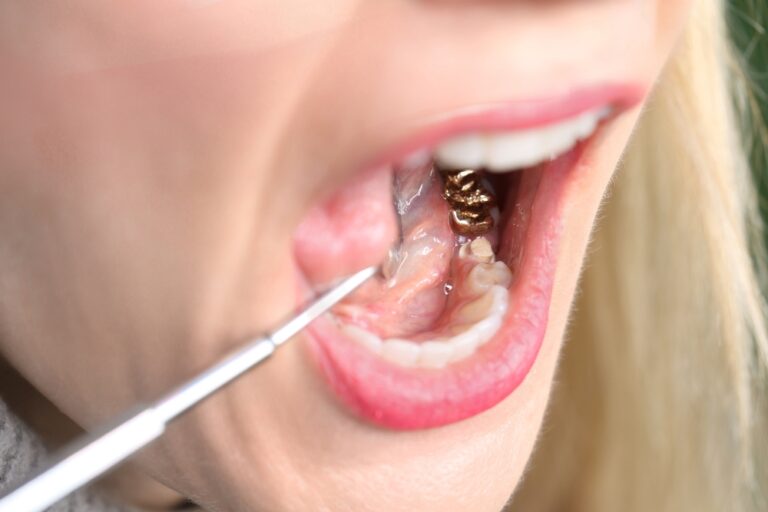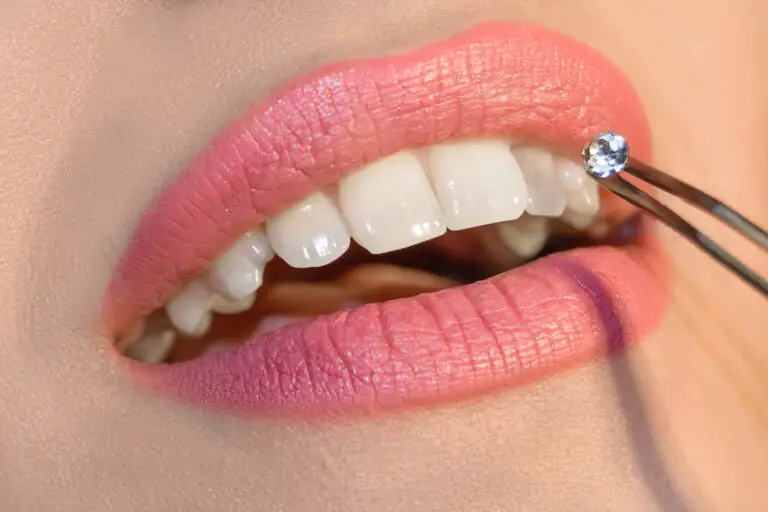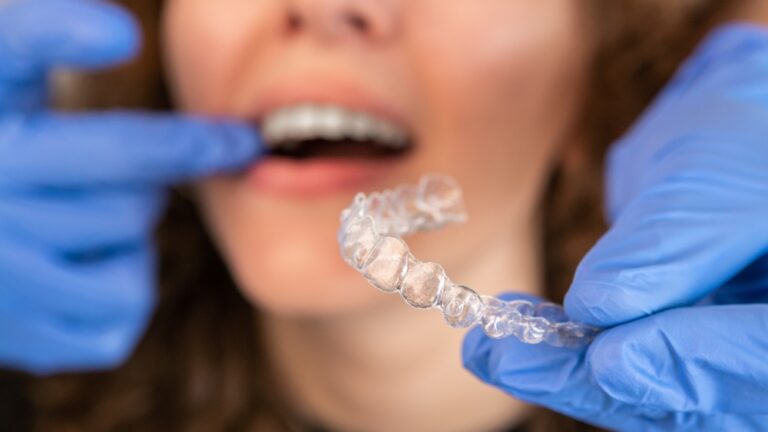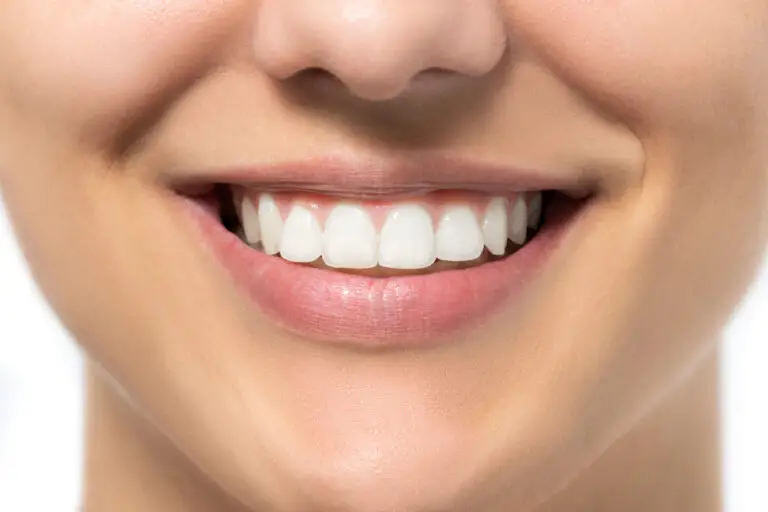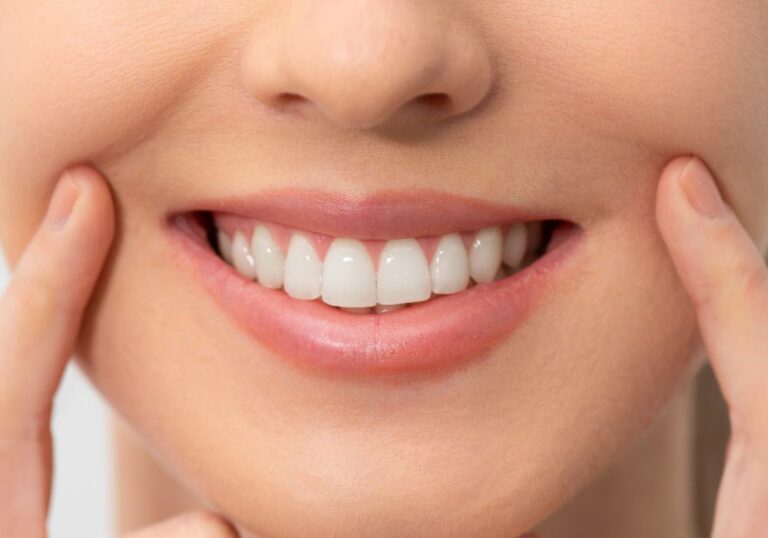Having clean, healthy teeth is an important part of overall good health. But for many people, properly cleaning their teeth can prove challenging for a variety of reasons. If you find it difficult to brush and floss independently, don’t worry – you have options for getting assistance. This in-depth article explores who can help you keep your teeth clean.
The Role of Plaque in Oral Health
Before diving into the various cleaning options, it helps to understand plaque and why it needs to be removed from your teeth. Plaque is a sticky film of bacteria that constantly forms on your teeth. If it is not brushed away, the bacteria can cause tooth decay and periodontal disease.
Some key facts about plaque:
- Plaque begins to accumulate on teeth within 20 minutes after eating. So regular brushing is important to disrupt this process.
- Besides bacteria, plaque is composed of food debris, saliva, and dead skin cells that stick to your teeth and harden.
- The longer plaque stays on teeth, the harder and more stubborn it becomes. This is known as tartar or calculus, which can only be removed by professional cleaning.
- Toxins from plaque bacteria start to damage tooth enamel and irritate gums. Keeping plaque under control prevents these issues.
Daily brushing and flossing at home keeps plaque buildup to a minimum. But some plaque between teeth and tartar along the gumline may be impossible to fully remove on your own. That’s why regular professional cleanings are essential.
Professional Teeth Cleaning Options
Getting your teeth professionally cleaned on a regular basis is crucial for reducing plaque and tartar. This removes deposits you can’t eliminate on your own while also polishing away stains. But who exactly can provide these professional dental cleanings?
Dental Cleanings with a Dentist
Visiting your general dentist’s office for examinations and teeth cleanings is the most common option. Typically, cleanings are performed by a dental hygienist under the supervision of the dentist. The dentist will first do an exam checking for cavities, gum disease and other potential issues. Then the hygienist will use specialized tools to:
- Thoroughly scrape away all built-up tartar above and below the gumline
- Polish each tooth using a rubber-tipped instrument to remove stains and create a smooth surface
- Floss between all teeth to dislodge any food particles or plaque
- Rinse your mouth with antibacterial solutions
- Apply fluoride or other protective treatments
Some additional benefits of professional dental cleanings include:
- Identifying problems early. The dentist may detect cavities or gum disease before you notice any symptoms. Early treatment prevents more serious issues.
- Customized home care instructions. The dental team will advise you on any areas needing improvement with your oral hygiene routine.
- Gum health assessment. Unhealthy gums can warn of issues like heart disease or diabetes. Your dentist monitors gum health at each visit.
- Whitening. Getting your teeth professionally polished every 6 months keeps stains away, giving you a brighter smile.
- Bad breath prevention. Removing all plaque bacteria helps eliminate bad breath. Tongue scraping may also be done.
Professional dental cleanings are recommended every 6 months for most people. However, the frequency varies based on an individual’s oral health status and risk factors. People prone to heavy tartar buildup or gum disease may need dental cleanings every 3 to 4 months for optimal oral health.
Dental Hygienist Cleanings
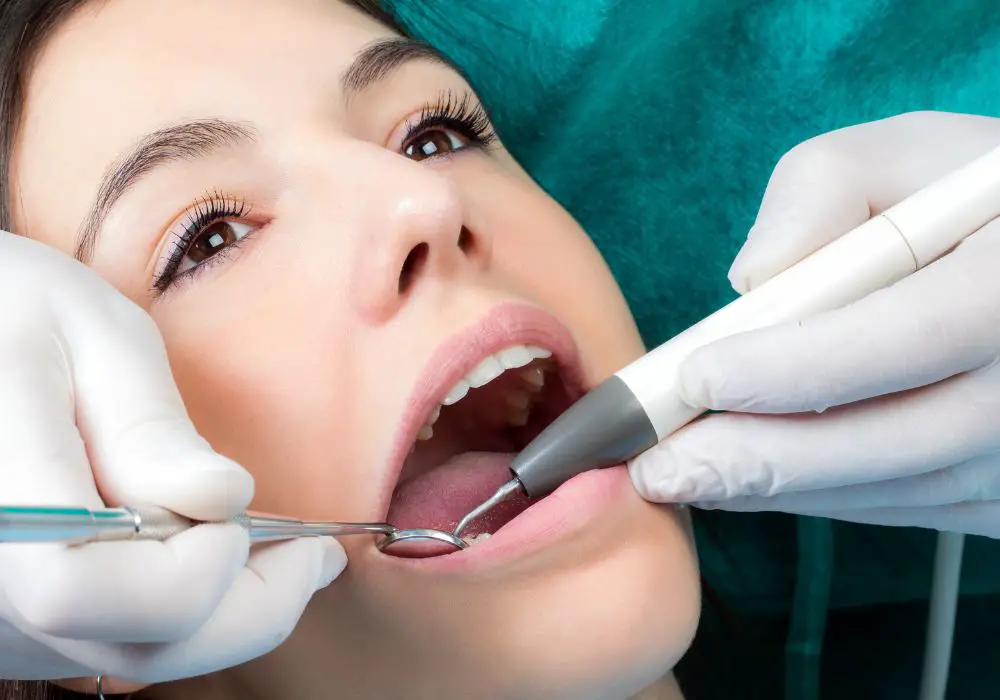
In some dental offices, patients may have the option to schedule appointments solely with the dental hygienist rather than the dentist. Dental hygienists are licensed oral health professionals with training focused specifically on cleaning teeth and educating patients.
Hygienist-only visits are often quicker and more affordable than dentist appointments. The hygienist will provide the full range of cleaning services, typically including:
- Plaque and tartar removal above and below the gumlines
- Flossing between all teeth
- Oral cancer screening
- Polishing teeth
- Fluoride treatment if needed
However, dentist guidance is still important to oversee the hygienist’s work and check for problems periodically. Patients also must get a full dentist examination at least once a year.
Hygienist visits work well for patients who require more frequent cleanings or have difficulty sitting through lengthier dentist appointments. The focused sessions allow more time dedicated specifically to the teeth cleaning process.
At-Home Oral Care Aides
Some patients may have physical or medical conditions making it challenging to keep up with oral hygiene between dental visits. These patients often benefit from professional assistance provided in their own home.
At-home oral care aides are dental professionals who visit patients in their homes to provide basic dental cleaning and hygiene services. Their services may include:
- Brushing teeth thoroughly to remove soft plaque buildup
- Flossing/interdental cleaning to remove food debris
- Rinsing with prescribed antibacterial and fluoride rinses
- Applying desensitizing or medicated gels as needed
- Advising on proper brushing and flossing techniques
- Safely cleaning dental appliances like dentures or retainers
These aides complement regular dental visits but do not replace the deeper cleanings provided in a dental office. Some signs a patient could benefit from an in-home oral care aide:
- Physical disabilities making it hard to brush or floss independently
- Limited manual dexterity due to conditions like arthritis
- Cognitive decline impacting ability to remember proper oral care
- Periodontal disease requiring more frequent cleanings
- Need for antibiotic or medicated rinses
Patients who get inadequate oral hygiene assistance at home or in long-term care facilities are also good candidates for at-home professional cleaning services. These aides ensure teeth get properly cleaned on a consistent basis.
Non-Professional Assistance Options
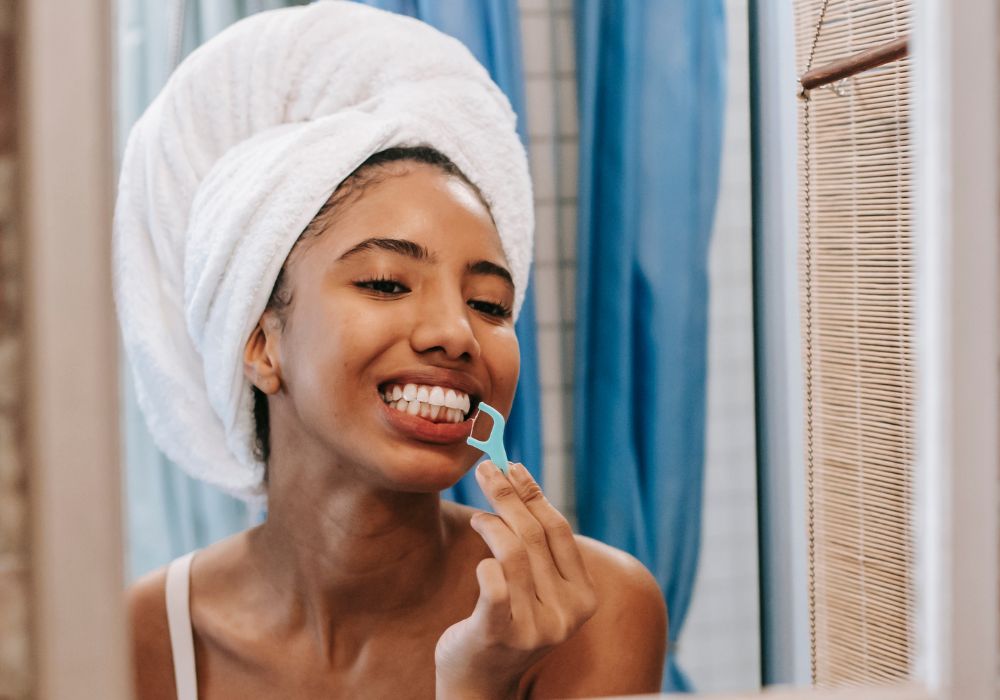
While professional cleanings are ideal, they can be costly and time-consuming. Some people may rely on family or friends for occasional help with basic daily oral hygiene.
Assistance from Family or Friends
Having a trusted friend or family member brush and floss your teeth can be an acceptable short-term option in certain situations. This could include:
- Recovery periods after surgery, injury or medical treatment affecting your arms or hands
- A flare-up of arthritis making it temporarily difficult to grasp a toothbrush
- Braces or dental appliances that are difficult to clean around
Caretakers can provide assistance with:
- Holding and maneuvering the toothbrush
- Gently brushing teeth, gums, tongue and palate
- Flossing carefully between teeth
- Rinsing the mouth with water or mouthwash
This approach works best as a temporary bridge until you can resume your normal oral care routine. For long-term use, professional cleanings are still recommended every 6 months. Proper sanitation of tools and hands is also important when involving family assistance.
Do-It-Yourself Aids for Independence
Specialized tools allow many people with limited mobility to brush and floss independently:
- Electric toothbrushes require only minimal movement to operate. The bristles move automatically to scrub teeth clean.
- Floss holders have a plastic handle with a floss head to grip and maneuver the floss with less dexterity needed.
- Adaptive handles that enlarge or customize the grip make toothbrushes and other tools easier to hold.
Occupational therapists can recommend assistive devices and equipment tailored to an individual’s needs and abilities. With some adaptation, most people can gain a level of oral hygiene self-sufficiency.
But these home aids should still be combined with regular professional cleanings for optimal plaque control.
Choosing the Best Cleaning Options for You
There are many ways to get help keeping your teeth clean if you are unable to brush and floss effectively solo. Consider the following when choosing your best options:
- Insurance Coverage – What oral health services does your dental insurance plan cover? This affects the out-of-pocket costs of professional cleaning options.
- Existing Dental Issues – More frequent cleanings may be recommended if you already have extensive plaque, tartar or gum disease issues.
- Dexterity Limitations – Do you require full assistance due to inability to use your hands effectively? Or are you able to clean somewhat independently with special tools?
- Caregiver Support – Is there a family member, friend or caretaker who can provide occasional oral hygiene assistance when needed?
- Budget – Will you need to pay privately for dental care assistance at home if insurance won’t cover it? Can you afford any out-of-pocket costs?
Discuss your specific situation with your dentist to determine the ideal teeth cleaning options tailored to your health status, needs and lifestyle. With the right assistance, anyone can achieve cleaner, healthier teeth.
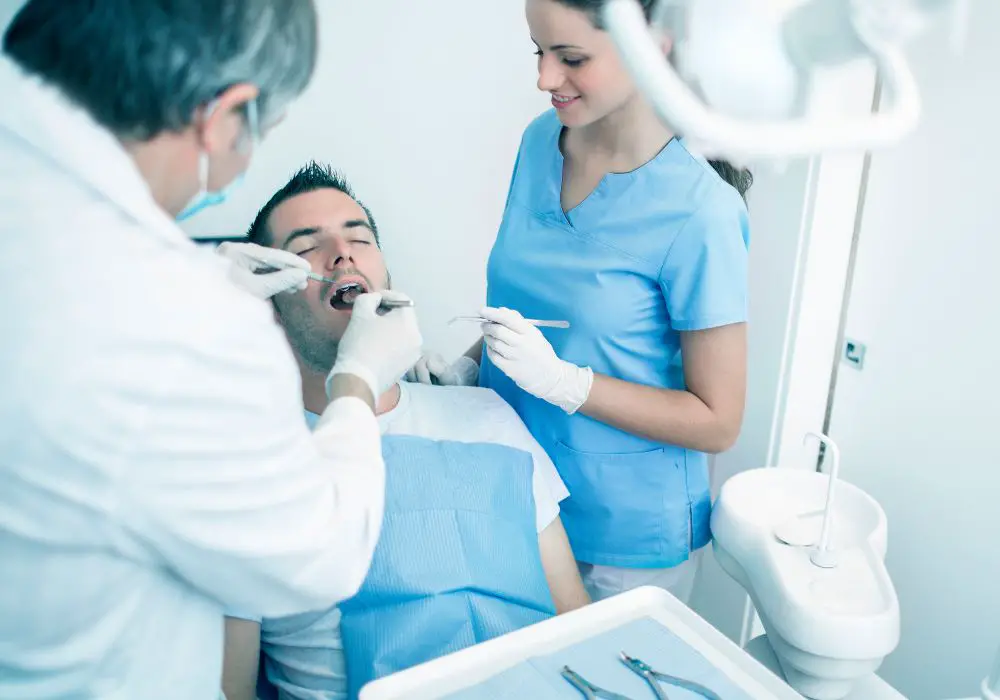
Frequently Asked Questions
Here are answers to some common questions about getting help cleaning your teeth:
How often should I get professional cleanings if I have trouble brushing at home?
If your daily oral hygiene is poor or inconsistent due to physical limitations, you may need professional cleanings as often as every 3 months. Discuss an appropriate schedule with your dentist based on your plaque buildup and gum health.
Do insurance plans cover in-home oral health aides?
Coverage varies by insurer. Medicare does not cover at-home dental care. Private plans may offer limited benefits with prior authorization. Check your policy or ask your insurance provider about coverage specifics.
Is it safe to use hydrogen peroxide if I can’t brush well?
Hydrogen peroxide is not recommended as a primary method of oral hygiene. While it helps remove some surface stains, it cannot effectively remove plaque. Depending on it too frequently can damage gums and tooth enamel over time.
What is the cost range for at-home professional dental cleanings?
Costs vary by provider and location but often range from $50 – $150 per visit without insurance. Some dental hygienists and nurses provide mobile services at hourly rates. Getting a price quote ahead of time is advised.
Can my caretaker use a toothbrush to clean my dentures?
It’s best to use a separate denture brush to avoid damaging the shape of the dentures with regular toothbrush bristles. Denture cleansers and antibacterial soaks are also recommended for thorough cleaning. Always have dentures handled carefully.
Takeaway Tips
- See your dentist and hygienist every 6 months (or more often if recommended) for a thorough professional cleaning.
- Ask your dentist about scheduling appointments solely with the hygienist if you want more streamlined cleaning visits.
- Consider hiring an at-home oral care aide to provide basic cleanings and assistance between dental visits if needed.
- Enlist the short-term help of family or friends for oral hygiene as a temporary bridge when compromised.
- Invest in specialized brushes, handles, and flossing tools to boost your independence with daily cleaning.
- Partner with your dentist to find the optimal mix of professional and at-home assistance to fit your health status and lifestyle.
With the right oral hygiene strategy tailored to your needs, you can maintain clean, healthy teeth for life. Don’t hesitate to get help from caring professionals.

